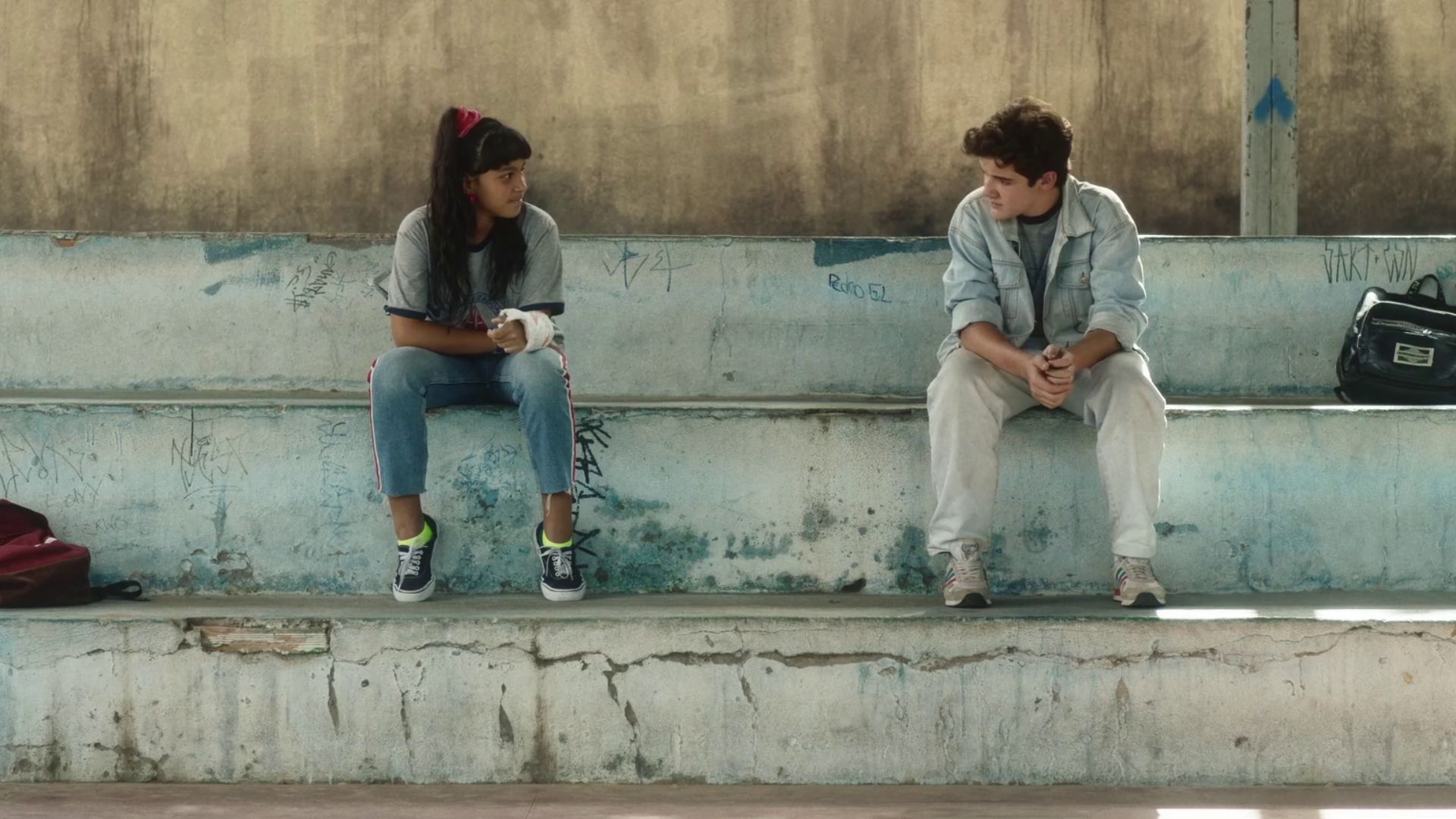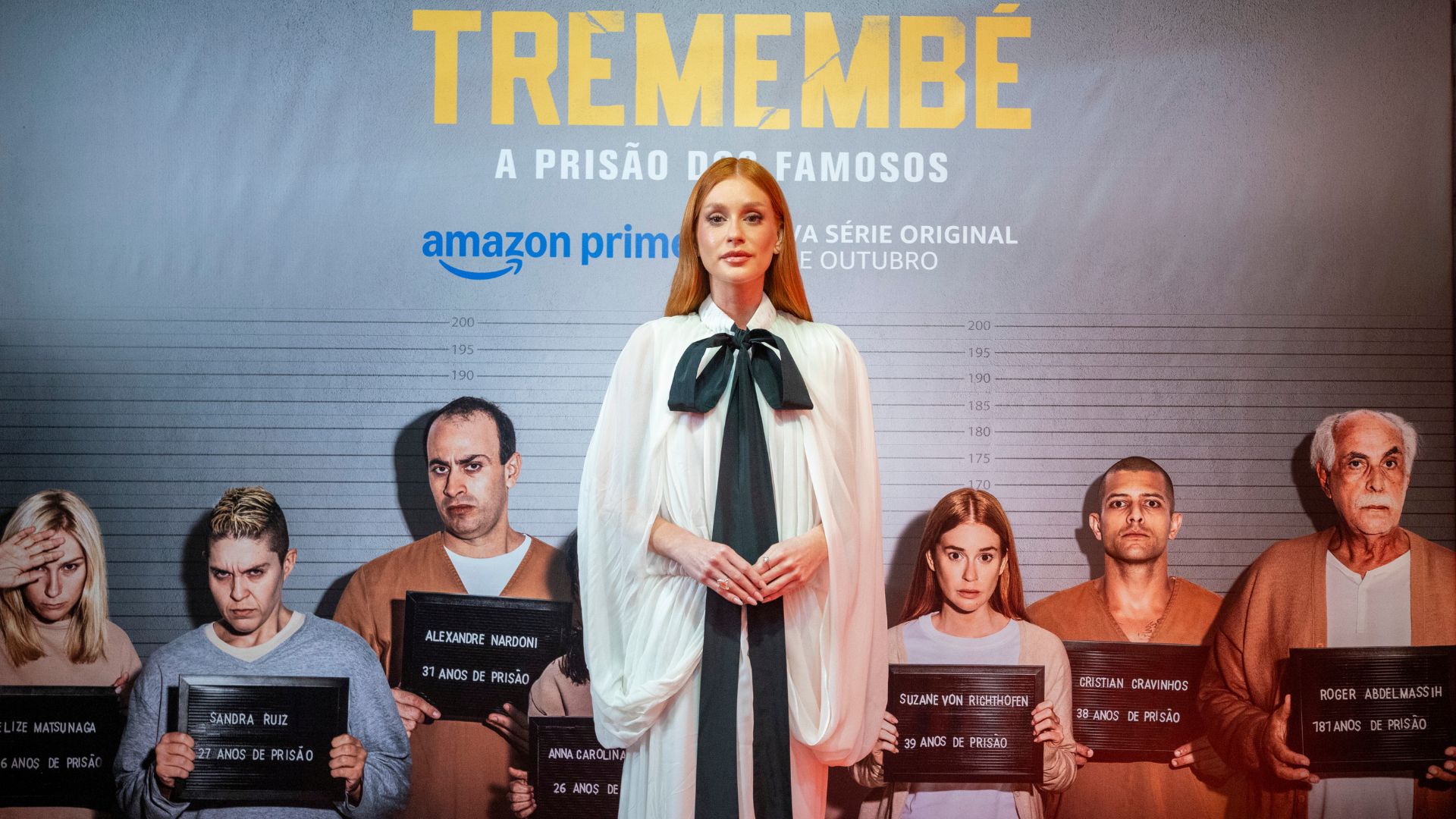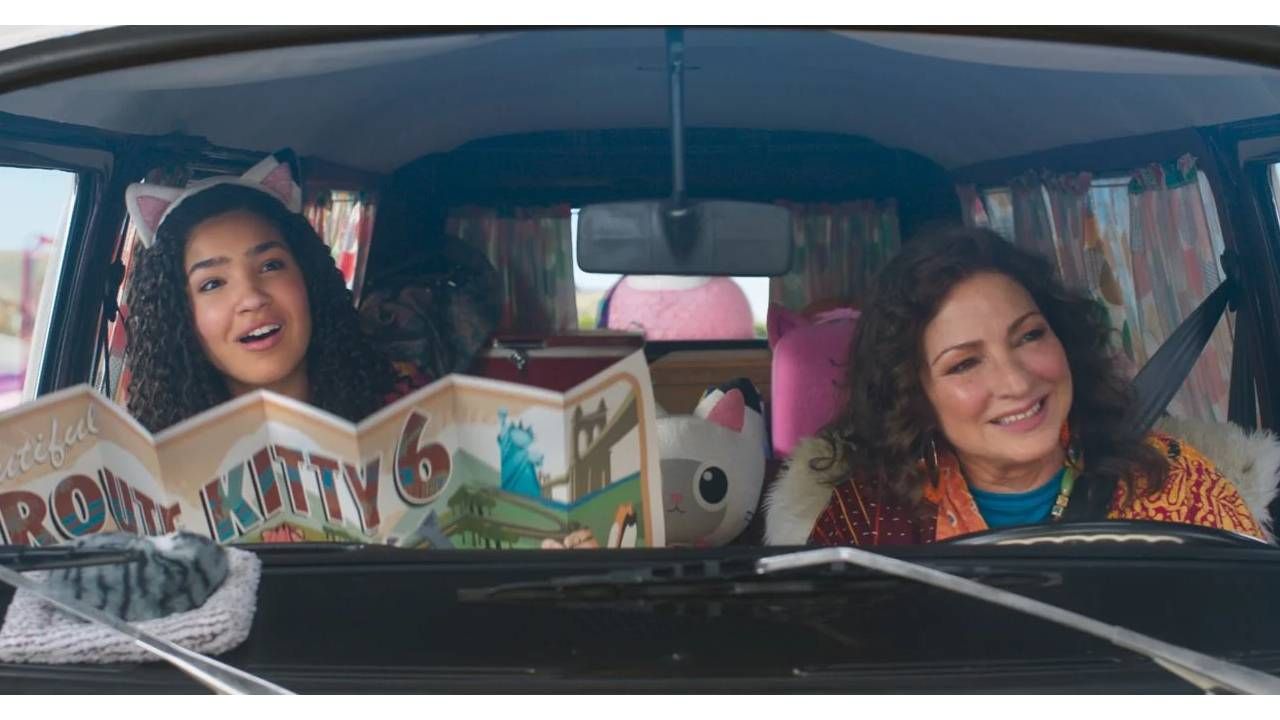Directed by Maurilio Martins, the film follows a boy who, in order to win the girl of his dreams, claims to have the tape of the legendary last episode of Caverna do Dragão
Created in 2009, the production company Plastic Films was born from the impulse to transform the intimate into the universal. From the heart of Minas Gerais, in Contagem, the directors André Novais Oliveira (The Day I Met You), Gabriel Martins (Mars One) and Maurilio Martins (In the Heart of the World) and the producer Thiago Macêdo Correia (The Happiness of Things) created a “filmmaking” that starts from their own experiences — from the streets, houses and memories that formed them — to reach the world. There is an emotional truth that runs through his works: filming what is known up close, with affection and without idealization.
The Last Episode is another chapter in this trajectory, in which everyday life becomes cinema and memory becomes a poetic gesture to be shared with the world. In the history of Maurilio martinsthe boy Erik (Matheus Sampaio), aged 13, has a platonic passion for Sheila (Lara Silva) and, to get closer to her, he claims to have a tape at home with the legendary “last episode” of the cartoon Dragon’s Cave. With the help of his friends, he tries to find a way out of the trouble he has found himself in, living an intense coming-of-age story.
The genre coming of age find in The Last Episode its most fertile ground. Maurílio Martins opens the chest of memories and transforms the past into fiction, returning to Jardim Laguna, in Contagem, and the raw material of childhood: amazement, fear and inaugural love. Everyone has already been Erik at some point — trying to be accepted, making up stories to seem more interesting, discovering that growing up hurts, but also liberates. The boy’s lie, his desire to be seen and welcomed, mirrors a Brazil that learned early on to create myths to cope with lack. It is a type of narrative that moves because it talks about what is common to everyone: the desire to belong, the fear of making mistakes, the charm of seeing the world for the first time. At the cinema of martinsthis rite of passage gains new layers — maturing is not forgetting who we were, but learning to look tenderly at what was left.
The director’s view of 1991 is less that of reconstruction and more that of evocation — a time that pulses with faded colors, hissing sounds and everyday gestures. Each object — the school uniform, the magazines, the posters stuck on the wall — carries a shared memory, but what matters is the feeling that these elements awaken. As in other works by Plastic Filmsthe periphery appears not as a space of lack, but of affective plenitude. It is the place where one matures with pain, humor and invention, where imagination is confused with survival.
The soundtrack of John Ulhoa and Richard Nevesmusicians from Duck Fuis the invisible thread that stitches these memories together. Made with timbres and textures that oscillate between analogue and invented, it recreates the sound of the 1980s and 1990s with a strong nostalgic appeal. There are tracks that sound like distorted memories — the echo of a distant radio, the hiss of a cassette tape that insists on playing — and others that amplify the emotion, like the song “Inside“, which marks one of the most intimate moments of the film. The duo’s work is of rare sensorial intelligence: the score does not comment on the film, it dreams it with it. The sound is also memory.
This communion between sound and image reveals the rigor of cinema martins. The director builds a narrative in which simplicity is an aesthetic strength: the daily life of the outskirts filmed with delicacy, the humor that emerges from within relationships, the pain that is never transformed into misery. The Last Episode It is, first and foremost, a film about affection — between friends, between mothers and children, between the filmmaker and the place he came from. It is proof that showing childhood on the periphery as a place of discovery and beauty is a gesture of resistance in the face of a country that so often denies dignity to its margins.
What differentiates the film from others coming of age it is your intimate Brazilianness. The maturation of Erik it’s not just emotional; it is also social and geographic. Growing up in Jardim Laguna in the 1990s is learning to dream within the limits of the possible, to invent a world where the real doesn’t fit. The film rescues this power with a tender and, at the same time, critical look — a nostalgia that is not escapism, but the elaboration of a wound. martins understands that the past is not relived: it reinvents itself in each memory, in each sound that returns.
At the end, The Last Episode It’s less about the legendary tape that no one has seen and more about the power of creating and sharing stories. By promising a non-existent episode, Erik invents its own, and the cinema of Maurílio Martins he does the same: he transforms absence into presence, noise into melody, longing into a gesture of sharing, his own story into fiction. It’s a film about growing up, but also about staying — true to sweetness, easy laughter, and the community that shapes us. A portrait of childhood for those who believe that memory is one of the most tender things to be shared.
READ ALSO: Robin Williams’ daughter criticizes artificial intelligence-generated videos that use her father’s image
![]()
-
coming of age
-
criticism
-
Plastic Films
-
John Ulhoa
-
Matheus Sampaio
-
Maurilio Martins
-
The Last Episode
-
Duck Fu
-
Richard Neves
Source: Rollingstone
Earl Johnson is a music writer at Gossipify, known for his in-depth analysis and unique perspective on the industry. A graduate of USC with a degree in Music, he brings years of experience and passion to his writing. He covers the latest releases and trends, always on the lookout for the next big thing in music.







-ubrgtmzebzhd.jpg)
